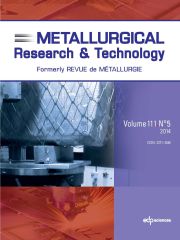Article contents
Towards application of life cycle sustainability analysis
Published online by Cambridge University Press: 29 March 2013
Abstract
There is an increasing need for expanding the scope of traditional life cycle studies to answer system-wide sustainability questions. This has resulted in a framework for life cycle sustainability analysis (LCSA). Since the framework was first published in 2009, as one of the outcomes of the CALCAS project, several views and considerations concerning the methodological approach have been published. However, until now practical experience with LCSA is very limited. This paper reports first efforts and experiences in bringing the LCSA framework into practice by assessing the sustainability of solar fuels. Starting point of the project is the hypotheses that new technologies can only be practically implemented if they fit into a socially, economically and ecologically sustainable context. The analysis therefore aims at identifying performance criteria which a new technology needs to fulfil in order to compete in the existing market. It is argued that a LCSA study should be initiated with a broad but relevant system description as the first of in total five steps Of this five step approach, the first – system description – is discussed here. The system description identifies and describes the technological description, the intended application of a technology, which share of specific demand for service will be met, which other technologies contribute in meeting this demand, the (relevant indicators for addressing )sustainable impacts of meeting the demand and developments over time. By doing so it provides a solid basis for further steps in the LCSA study.
- Type
- Research Article
- Information
- Metallurgical Research & Technology , Volume 110 , Issue 1: Social Value of Materials , 2013 , pp. 29 - 36
- Copyright
- © EDP Sciences 2013
References
- 7
- Cited by




